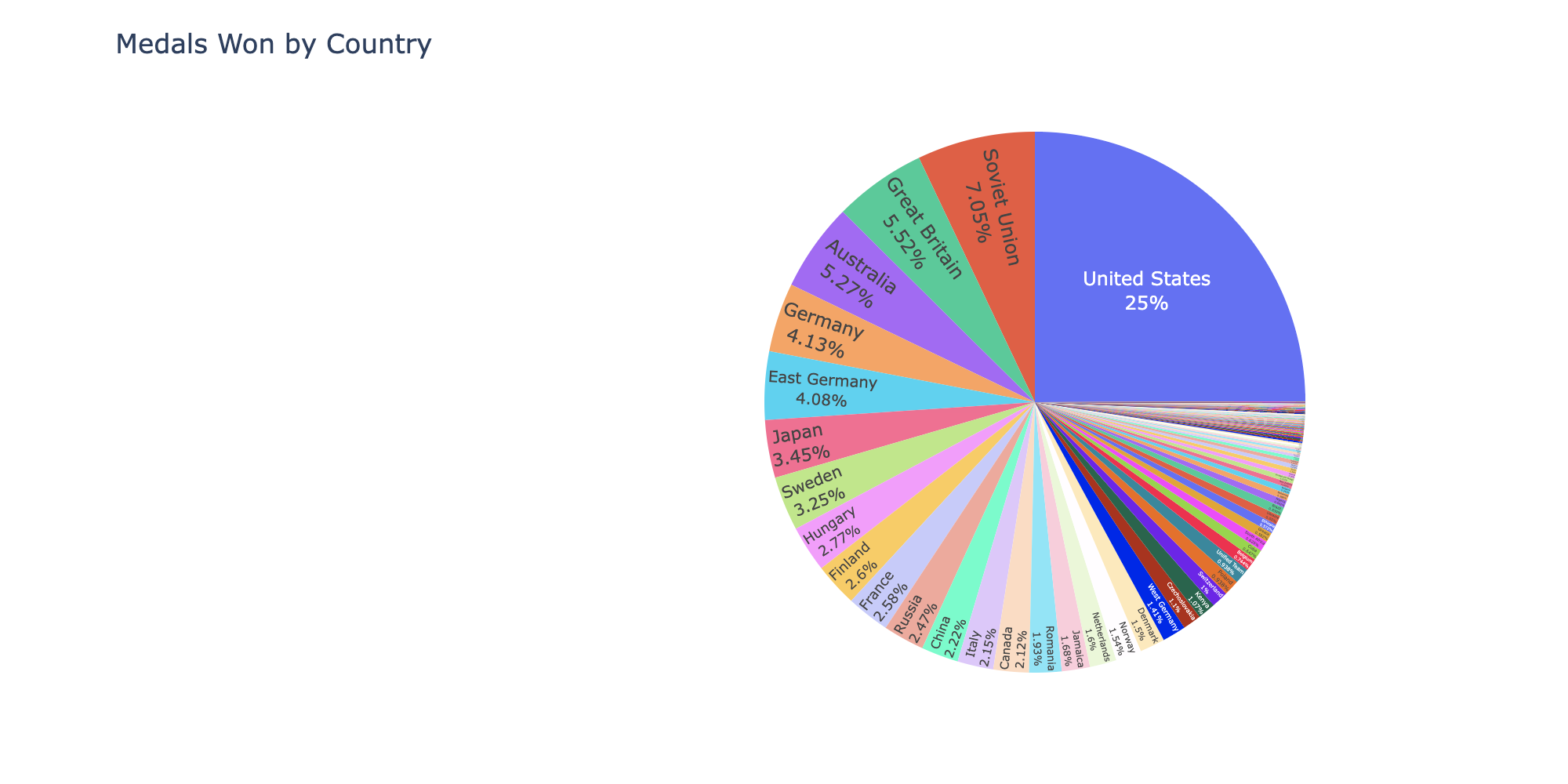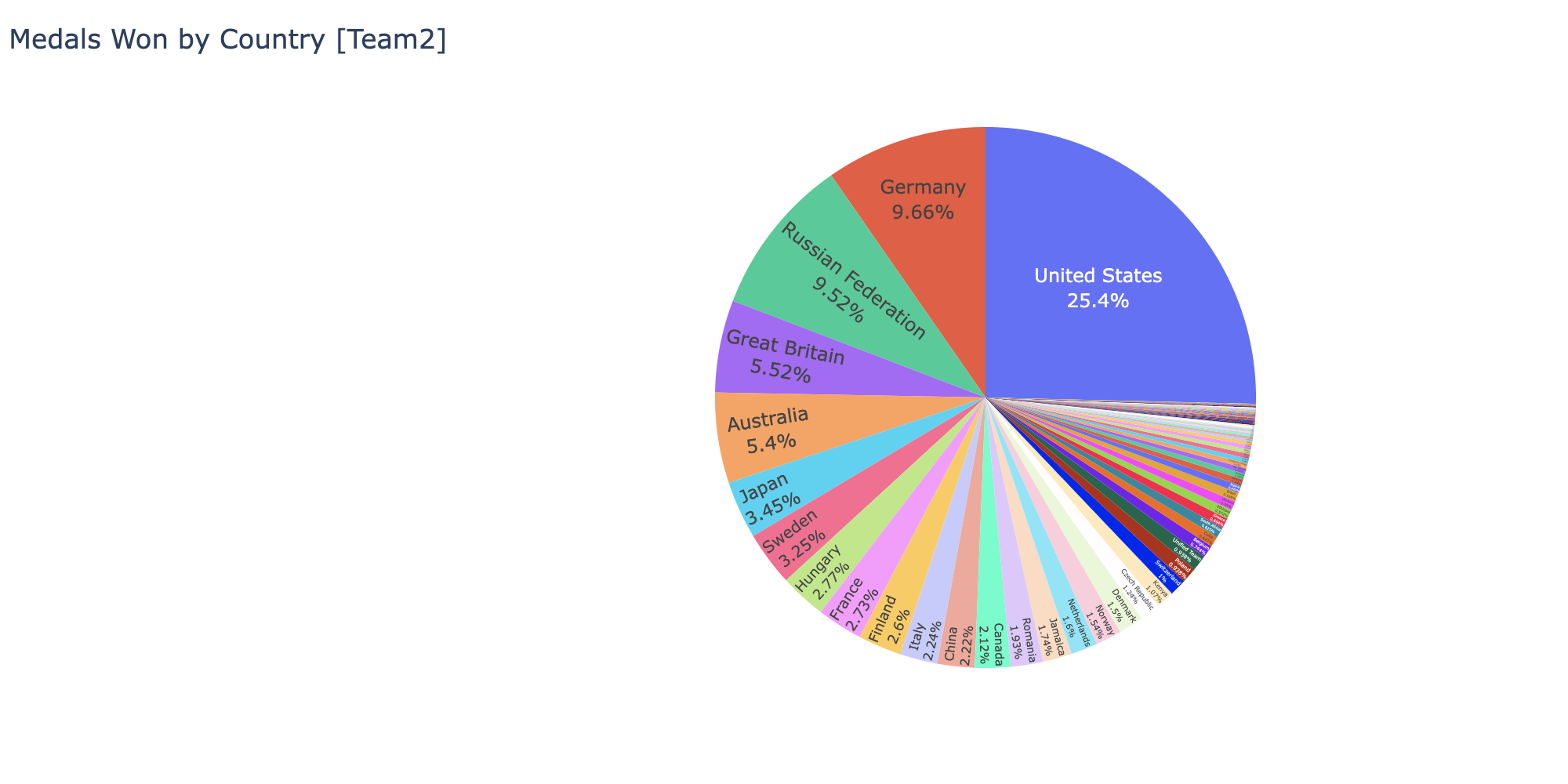Country Analysis
Which countries have the most athletes that qualify for the Olympics?
Below are two chloropleths that visualize the number of athlete event occurences in the Olympics by country for athletics, gymnastics, and aquatics events.
Insights
It is clear that the United States dominates this visualization, with almost 7 thousand athlete appearances, while the second most appearances is Great Britain, with over 4,600 appearances. It is also surprising that countries with cold weather such as Canada, Finland, and Sweden have 2 to 3 thousand athlete appearances each in the Summer Olympic events we are analyzing.
Which countries win the most medals?
Below are two animated chloropleths and two pie charts that visualize the number of athlete medals won in the Olympics by country for athletics, gymnastics, and aquatics events.


Insights
In these three Olympic sports, the United States has more than 1 in every 4 medals, and only Germany and Russia (plus Soviet Union) have won at a third of that rate. The US also wins at least one medal in each games, with the exception of 1980. Comparing chloropleths from the previous research question to the current, it is evident that France sends a lot of athletes to these events but does not medal often. Spain has about 1,700 athlete appearances but a measly 26 medals to show for it. Conversely, Australia performs well and has over 490 medals in only about 2,800 appearances.
How does countries' success differ over time?
Below are four time series that visualize the number of athlete medals won by country for athletics, gymnastics, and aquatics events, with a further analysis of the top five medal-winning countries.
Insights
In all but a handful of Olympic games, the United States has won the most medals, only being bested by Germany, Sweden, Russia, and Great Britain. It is evident that the United States' continued dominance have allowed them to pull significantly ahead in medal count over the course of Olympic history. The top five medal-winning countries have remained relatively competitive with each other over Olympic history, with Great Britain having the second highest cumulative medal count until 1968, when they were passed by both Germany and Russia. Germany has had the second most cumulative medals in our specified sports until the end of this dataset, but Russia has pulled within 13 medals of a second-place tie.
Does hosting an Olympics have an impact on medal performance?
Below is a scater plot that visualizes countries who have hosted an Olympics and their average athlete medal count for athletics, gymnastics, and aquatics events in home and away competitions.
Insights
Generally, countries tend to medal more often in these events during home games compared to away games. Only Finland has slightly underperformed at home compared to their away average, but the home sample size is small so it is difficult to tell if they are outliers or victims of a small sample. A standout data point is Sweden, who averages about 9 medals in these sports in away olympic games and 58 in home olympic games, about a 540% increase!
Country Analysis Conclusions
Overall, the United States dominates in athletics, aquatics, and gymnastics events. They send the most athletes by far and win the most medals as a result, and have been doing so since the beginnng of our dataset. Countries such as Australia, Great Britain, Germany, and Russia have had strong showings historically as well compared to the rest of the world, but are consistently bested by the United States. It is also evident to point out that home teams tend to perform better than their average medal count, and the United States has hosted many games over the course of this dataset, which could contribute to their dominance. Next, we would like to dive deeper into specific sports and athletes to find out why these countries have been so dominant.